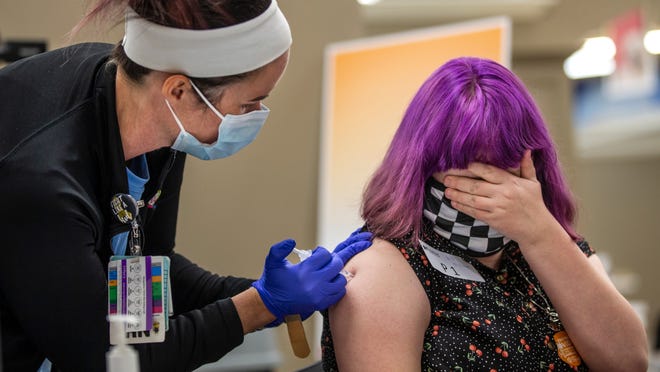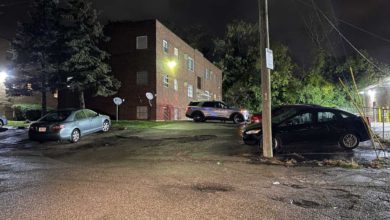

Cynthia Weil, a Grammy-winning lyricist of notable range and endurance who enjoyed a decades-long partnership with husband Barry Mann and helped write "You've Lost That Lovin' Feeling," "On Broadway," "Walking in the Rain" and dozens of other hits, has died at age 82.Her death was confirmed Friday by Interdependence Public Relations, which represents Mann's daughter, Dr. Jenn Mann. A spokesperson did not immediately have further details.Cynthia Weil and Barry Mann, married in 1961, were one of popular music's most successful teams, part of a remarkable ensemble recruited by impresarios Don Kirshner and Al Nevins and based in Manhattan's Brill Building neighborhood, a few blocks from Times Square. With such hit-making combinations as Carole King and Gerry Goffin and Jeff Barry and Ellie Greenwich, the Brill Building song factory turned out many of the biggest singles of the '60s and beyond.Weil and Mann were key collaborators with producer Phil Spector on songs for the Ronettes ("Walking in the Rain"), the Crystals ("He's Sure the Boy I Love") and other performers, and also provided hits for everyone from Dolly Parton to Hanson. “Don’t Know Much,” a Linda Ronstadt-Aaron Neville duet they helped write, was a top 5 hit that won a best pop performance Grammy in 1990.Their most famous song, a work of history overall, was "You've Lost That Lovin' Feeling," an anthem of "blue-eyed soul" produced by Spector as if scoring a tragedy and sung with desperate fury by the Righteous Brothers. "You've Lost That Lovin' Feeling" topped the charts in 1965 and was covered by numerous other artists. According to Broadcast Music Inc. (BMI), no other song was played more on radio and television in the 20th century.But when Weil and Mann first played "You've Lost That Lovin' Feeling" for the Righteous Brothers, the response from singers Bill Medley and Bobby Hatfield was "dead silence.""Bill said, 'Sounds good for The Everly Brothers not the Righteous Brothers,'" she told Parade magazine in 2015. "We thought 'Oh, God.' Then Bobby said, 'What am I supposed to do while the big guy's singing?' and Phil (Spector) said "You can go to the bank.'"While many of Weil's peers struggled once the Beatles caught on, she continued to make hits, sometimes with Mann, or with such partners as Michael Masser, David Foster and John Williams, with whom she wrote “For Always” for the soundtrack to Steven Spielberg’s “A.I. Artificial Intelligence.” Mann helped write Parton's pop breakthrough "Here You Come Again"; the Peabo Bryson ballad "If Ever You're In My Arms Again"; James Ingram's "Just Once"; the Pointer Sisters' "He's So Shy"; and Lionel Richie's "Running With the Night." In 1997, she was in the top 10 again with Hanson's "I Will Come to You.""When they are successful, songs are like little novels. They have a beginning, a middle and an end. You feel what the person is feeling who's singing it and it paints a picture of the human condition," Weil, who eventually published the novel "I'm Glad I Did," told Parade.Her talents reached well beyond love ballads. She and Mann wrote one of rock's first anti-drug songs, "Kicks," a hit for Paul Revere and the Raiders in 1966. She also had a knack for lyrics about ambition and aspiration, such as "On Broadway" and its unforgettable opening line, "They say the neon lights are bright/on Broadway." The Animals had a hit with her tale of working class frustration, "We've Got to Get Out of This Place." The Crystals' "Uptown" was a 1961 hit that touched upon race and class in ways not often heard in rock's early years.
Cynthia Weil, a Grammy-winning lyricist of notable range and endurance who enjoyed a decades-long partnership with husband Barry Mann and helped write "You've Lost That Lovin' Feeling," "On Broadway," "Walking in the Rain" and dozens of other hits, has died at age 82.
Her death was confirmed Friday by Interdependence Public Relations, which represents Mann's daughter, Dr. Jenn Mann. A spokesperson did not immediately have further details.
Cynthia Weil and Barry Mann, married in 1961, were one of popular music's most successful teams, part of a remarkable ensemble recruited by impresarios Don Kirshner and Al Nevins and based in Manhattan's Brill Building neighborhood, a few blocks from Times Square. With such hit-making combinations as Carole King and Gerry Goffin and Jeff Barry and Ellie Greenwich, the Brill Building song factory turned out many of the biggest singles of the '60s and beyond.
Weil and Mann were key collaborators with producer Phil Spector on songs for the Ronettes ("Walking in the Rain"), the Crystals ("He's Sure the Boy I Love") and other performers, and also provided hits for everyone from Dolly Parton to Hanson. “Don’t Know Much,” a Linda Ronstadt-Aaron Neville duet they helped write, was a top 5 hit that won a best pop performance Grammy in 1990.
Their most famous song, a work of history overall, was "You've Lost That Lovin' Feeling," an anthem of "blue-eyed soul" produced by Spector as if scoring a tragedy and sung with desperate fury by the Righteous Brothers. "You've Lost That Lovin' Feeling" topped the charts in 1965 and was covered by numerous other artists. According to Broadcast Music Inc. (BMI), no other song was played more on radio and television in the 20th century.
But when Weil and Mann first played "You've Lost That Lovin' Feeling" for the Righteous Brothers, the response from singers Bill Medley and Bobby Hatfield was "dead silence."
"Bill said, 'Sounds good for The Everly Brothers not the Righteous Brothers,'" she told Parade magazine in 2015. "We thought 'Oh, God.' Then Bobby said, 'What am I supposed to do while the big guy's singing?' and Phil (Spector) said "You can go to the bank.'"
While many of Weil's peers struggled once the Beatles caught on, she continued to make hits, sometimes with Mann, or with such partners as Michael Masser, David Foster and John Williams, with whom she wrote “For Always” for the soundtrack to Steven Spielberg’s “A.I. Artificial Intelligence.” Mann helped write Parton's pop breakthrough "Here You Come Again"; the Peabo Bryson ballad "If Ever You're In My Arms Again"; James Ingram's "Just Once"; the Pointer Sisters' "He's So Shy"; and Lionel Richie's "Running With the Night." In 1997, she was in the top 10 again with Hanson's "I Will Come to You."
"When they are successful, songs are like little novels. They have a beginning, a middle and an end. You feel what the person is feeling who's singing it and it paints a picture of the human condition," Weil, who eventually published the novel "I'm Glad I Did," told Parade.
Her talents reached well beyond love ballads. She and Mann wrote one of rock's first anti-drug songs, "Kicks," a hit for Paul Revere and the Raiders in 1966. She also had a knack for lyrics about ambition and aspiration, such as "On Broadway" and its unforgettable opening line, "They say the neon lights are bright/on Broadway." The Animals had a hit with her tale of working class frustration, "We've Got to Get Out of This Place." The Crystals' "Uptown" was a 1961 hit that touched upon race and class in ways not often heard in rock's early years.
Source link







